
Mao Zedong was a Chinese politician, Marxist theorist, military strategist, poet, and revolutionary who was the founder of the People's Republic of China (PRC). He led the country from its establishment in 1949 until his death in 1976, while also serving as the chairman of the Chinese Communist Party during that time. His theories, military strategies and policies are known as Maoism.

Maoism, also known as Mao Zedong Thought, is a variety of Marxism–Leninism that Mao Zedong developed while trying to realize a socialist revolution in the agricultural, pre-industrial society of the Republic of China and later the People's Republic of China. A difference between Maoism and traditional Marxism–Leninism is that a united front of progressive forces in class society would lead the revolutionary vanguard in pre-industrial societies rather than communist revolutionaries alone. This theory, in which revolutionary praxis is primary and ideological orthodoxy is secondary, represents urban Marxism–Leninism adapted to pre-industrial China. Later theoreticians expanded on the idea that Mao had adapted Marxism–Leninism to Chinese conditions, arguing that he had in fact updated it fundamentally and that Maoism could be applied universally throughout the world. This ideology is often referred to as Marxism–Leninism–Maoism to distinguish it from the original ideas of Mao.
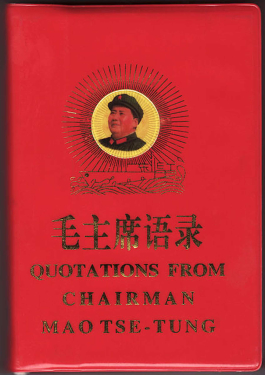
Quotations from Chairman Mao Tse-tung is a book of statements from speeches and writings by Mao Zedong, the former Chairman of the Chinese Communist Party, published from 1964 to 1979 and widely distributed during the Cultural Revolution.

Edgar Parks Snow was an American journalist known for his books and articles on communism in China and the Chinese Communist Revolution. He was the first Western journalist to give an account of the history of the Chinese Communist Party following the Long March, and he was also the first Western journalist to interview many of its leaders, including Mao Zedong. He is best known for his book, Red Star Over China (1937), an account of the Chinese Communist movement from its foundation until the late 1930s.

The Red Guards were a mass, student-led, paramilitary social movement mobilized by Chairman Mao Zedong in 1966 until their abolishment in 1968, during the first phase of the Cultural Revolution, which he had instituted.
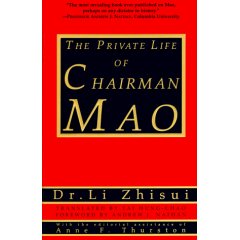
The Private Life of Chairman Mao: The Memoirs of Mao's Personal Physician is a memoir by Li Zhisui, one of the physicians to Mao Zedong, former Chairman of the Chinese Communist Party, which was first published in 1994. Li had emigrated to the United States in the years after Mao's death. The book describes the time during which Li was Mao's physician, beginning with his return to China after training in Australia, through the height of Mao's power to his death in 1976 including the diverse details of Mao's personality, sexual proclivities, party politics and personal habits.
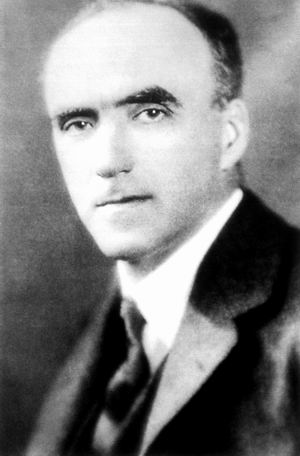
John Leighton Stuart was a missionary educator, the first President of Yenching University and later United States ambassador to China. He was a towering figure in U.S.-China relations in the first half of the 20th century, a man TIME magazine described as "perhaps the most respected American in China." According to one Chinese historian, "there was no other American of his ilk in the 20th century, one who was as deeply involved in Chinese politics, culture, and education and had such an incredible influence in China."
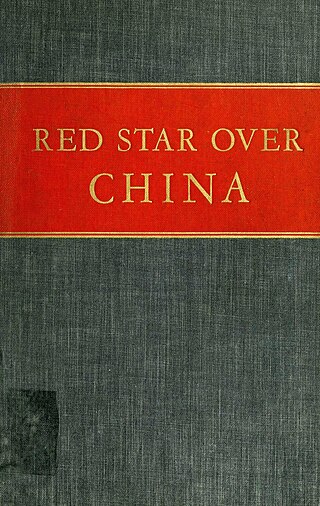
Red Star Over China is a 1937 book by Edgar Snow. It is an account of the Chinese Communist Party (CCP) that was written when it was a guerrilla army and still obscure to Westerners. Along with Pearl S. Buck's The Good Earth (1931), it was the most influential book on Western understanding of China as well as the most influential book on Western sympathy for Red China in the 1930s.
Nagalingam Shanmugathasan was a trade unionist and Maoist revolutionary leader in Sri Lanka. He was the General Secretary of the Ceylon Communist Party (Maoist)
Pierre Stephen Robert Payne was an English-born author, known principally for works of biography and history, although he also wrote novels, poetry, magazine articles and many other works. After working in Singapore and China, he moved to the United States in 1946 and became a professor of English literature. From 1954 onwards he lived as a writer in New York.
On Protracted War is a work comprising a series of speeches by Mao Zedong given from May 26, 1938, to June 3, 1938, at the Yenan Association for the Study of the War of Resistance Against Japan. In it, he calls for a protracted people's war, as a means for small revolutionary groups to fight the power of the state.

People's Literature is the oldest continuously published literary magazine in China, and the first literary magazine published in Communist China. Established in 1949, the magazine is published by the People's Literature Publishing House and issued by the Chinese Writers Association. Its head office is located at 166 Chaonei Ave, Beijing. Its current director is Pan Kaixiong (潘凯雄) and its current editor-in-chief is Guan Shiguang (管士光).
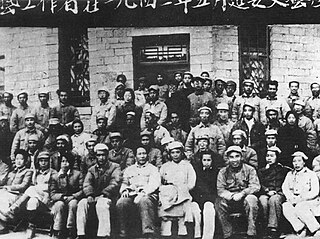
The Yan'an Forum on Literature and Art was a May 1942 forum held in the Yan'an Soviet and a significant event in the Yan'an Rectification Movement. It is most notable for the speeches given by Mao Zedong, later edited and published as Talks at the Yan'an Forum on Literature and Art which dealt with the role of literature and art in the country. The two main points were that (1) all art should reflect the life of the working class and consider them as an audience, and (2) that art should serve politics, and specifically the advancement of socialism. The excesses of the latter point during the Cultural Revolution led to current Chinese Communist Party policy rejecting that point, but retaining Mao's encouragement of peasant-focused art and literature.

Political power grows out of the barrel of a gun is a phrase which was coined by Chinese communist leader Mao Zedong. The phrase was originally used by Mao during an emergency meeting of the Chinese Communist Party (CCP) on 7 August 1927, at the beginning of the Chinese Civil War.

The History of the All-Union Communist Party (Bolsheviks): Short Course, translated to English under the title History of the Communist Party of the Soviet Union (Bolsheviks): Short Course, is a textbook on the history of the All-Union Communist Party (Bolsheviks), first published in 1938. Colloquially known as the Short Course, it became the most widely disseminated book during the time that Joseph Stalin served as the General Secretary of the Central Committee of the AUCP (B) and one of the most important works elucidating Marxism–Leninism.

Stuart Reynolds Schram was an American physicist, political scientist and sinologist who specialised in the study of modern Chinese politics. He was particularly well known for his works on the life and thought of Mao Zedong.

"To the Rear of the Enemy", also translated as "To Go Behind Enemy Lines", is a Chinese patriotic song written in 1938 by Zhao Qihai. The song was a popular melody during the Second Sino-Japanese War, where it was used by numerous guerilla groups and gained popularity as a resistance song against the Japanese.
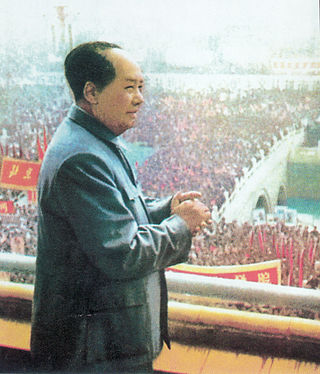
Mao Zedong's cult of personality was a prominent part of Chairman Mao Zedong's rule over the People's Republic of China from the state's founding in 1949 until his death in 1976. Mass media, propaganda and a series of other techniques were used by the state to elevate Mao Zedong's status to that of an infallible heroic leader, who could stand up against the West, and guide China to become a beacon of communism.

Report on an Investigation of the Peasant Movement in Hunan or Inquiry into the Peasant Movement of Hunan of March 1927, often called the Hunan Report, is one of Mao Zedong's most famous and influential essays. The Report is based on a several month visit to his home countryside around Changsha, capital of Hunan in early 1927. The Report endorses the violence that had broken out spontaneously in the wake of the Northern Expedition, makes a class analysis of the struggle, and enthusiastically reports the "Fourteen Great Achievements" of the peasant associations (农民协会).

The Selected Works of Mao Tse-Tung, is a five volume collection of the written works of Mao Zedong ranging from the years 1926–1957. The collection was first published by the People's Publishing House in 1951, and was later translated into English by the state-owned Foreign Languages Press. A fifth volume, which included the works of Chairman Mao from 1949 to 1957, was released during the leadership of Hua Guofeng, but subsequently withdrawn from circulation for its perceived ideological errors. There has never been an official "Complete Works of Mao Zedong" collecting all his known publications. A number of unauthorized volumes of the Selected Works of Mao Tse-Tung have been released, such as Volumes 6–9 which were published in India by the Communist Party of India (Maoist).















